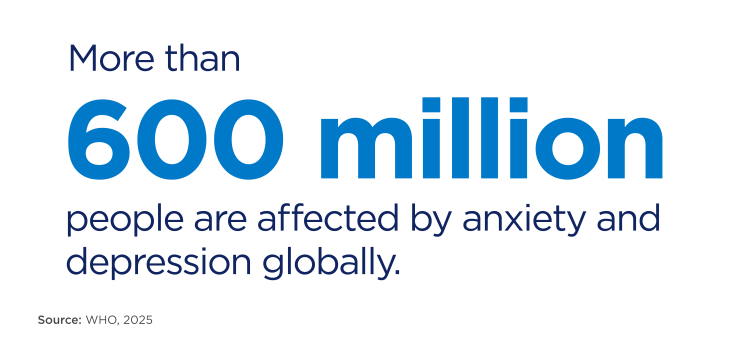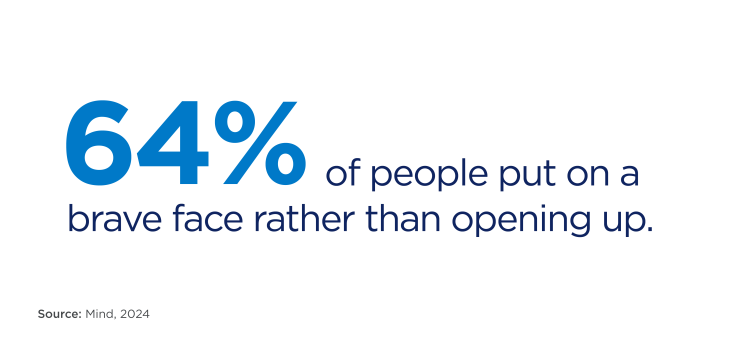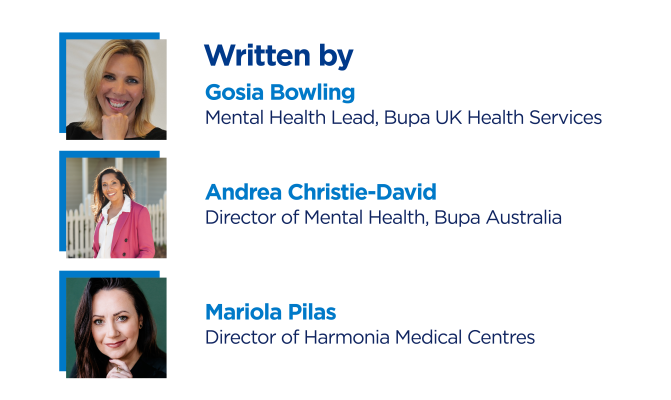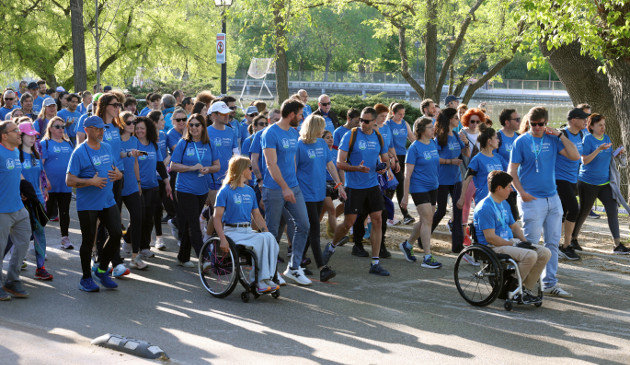We tend to focus on our mental health largely when something feels wrong – but caring for our minds should be part of staying well, not just getting better.
Mental health is one of the greatest health challenges of our time. Rates of anxiety and depression continue to rise, ranking among the top six causes of poor health worldwide. More than 600 million people are affected globally.

To live longer, healthier, happier lives, we must make caring for our mental health an everyday habit – as routine as a dental check-up or gym session.
Understanding how to get there means exploring the connection between mind and body, the barriers that keep people silent and what it will take to bring support into everyday life.
The mind–body connection: why mental and physical health are inseparable
Our mental and physical health are deeply connected, each influencing the other in ways that are often overlooked.
People living with mental health conditions face higher risks of heart disease, diabetes and obesity, and often experience physical symptoms such as fatigue, headaches and sleep disruption.
The connection runs both ways. Being physically unwell – whether through short-term illness or long-term conditions – can take a serious toll on mental wellbeing, increasing the likelihood of anxiety or depression. Around 30% of people with a long-term physical health condition also have a mental health problem. Despite this, mental health support is rarely built into treatment plans, leaving many to manage the psychological impact of illness alone.
Even though these challenges are widespread, many people still suffer in silence.
The barrier of stigma: why we still struggle to open up
Stigma remains one of the biggest obstacles to seeking help.
Bupa’s global research shows 82% of people believe sharing health experiences supports wellbeing. Yet almost half (49%) have avoided addressing a health concern, with nearly a quarter (24%) citing embarrassment or stigma. Research shows that in both Australia and the UK, just 48% of people say they are comfortable talking about their mental health. In Poland, just a decade ago, 60% of people said they believed that seeking psychiatric help was “shameful”.
This picture is echoed in wider research. A study from Rethink Mental Illness found that three in five people living with a mental illness did not seek support due to concerns about how they would be perceived by others. A Mind survey also revealed that 64% of people put on a brave face rather than opening up.

Research from the Mayo Clinic shows that stigma reinforces silence – lowering self-esteem, fostering feelings of worthlessness and creating a fear of discrimination and social isolation.
To break down these barriers, support needs to be easier to access and a routine part of daily life.
The next step: building mental health into everyday care
Bupa believes caring for your mind should feel as natural as caring for your body.
Through Mindplace, Bupa is creating a global network of wellbeing centres to bring mental health into our day-to-day lives. These calm, welcoming spaces offer expert face-to-face support and a place to connect, heal and grow.
Over the next few years, Bupa will open 200 Mindplace Centres worldwide. Care will be personalised and focused on prevention and continuity. By helping people access support earlier – and stay well for longer – Bupa aims to make mental health care as routine as a check-up.
In addition to physical spaces, digital tools also provide support when and where it is needed. For example, Blua, digital health by Bupa, provides immediate access to virtual appointments with mental health experts, plus health programmes including mindfulness and meditation.
But embedding mental health into daily life isn’t only about clinics or technology – it’s also about cultural change and small everyday actions. That’s why Bupa created Health Stories – a movement designed to normalise conversations about health. By encouraging people to share their experiences openly, Health Stories helps break down stigma and shows how openness can strengthen mental wellbeing across communities.
Everyday actions: what we can all do
Everyone has a role to play in normalising mental health and reducing stigma. Together, we can build a culture of openness and understanding, where seeking support feels natural and encouraged.
Practical steps can make a real difference. The National Alliance on Mental Illness outlines everyday actions that help shift attitudes and support others.
For example, talking openly about mental health can help to challenge stereotypes and build understanding. Using supportive language and showing empathy can also change how people feel about seeking help. It’s vital that we treat mental health like physical health – offering the same care and acceptance we would to someone recovering from an injury or illness.
We can also care for our own wellbeing by building small daily habits around sleep, diet and movement, while connecting with others, setting boundaries and practising self-compassion.
Looking ahead: making mental health part of the everyday
When mental health becomes part of daily life – talked about, cared for and supported everywhere – prevention becomes possible and recovery often becomes faster.
With initiatives such as Mindplace and Health Stories, Bupa is helping to reshape how mental health is understood and supported – making care more open, proactive and human.
Caring for our mental health shouldn’t be an afterthought. It should be an everyday habit that can help us all live longer, healthier, happier lives. This focus was reflected at the Bupa Symposium 2025, where we were proud to invite New Zealand All Blacks legend Sir John Kirwan on stage to talk about his own struggles with mental health. During the sessions, he said:
“Poor mental health, especially anxiety and depression, takes away your self-esteem, self-confidence and enjoyment in life. So I put my mental health first. Every single day, you need to look after your mental health.”




